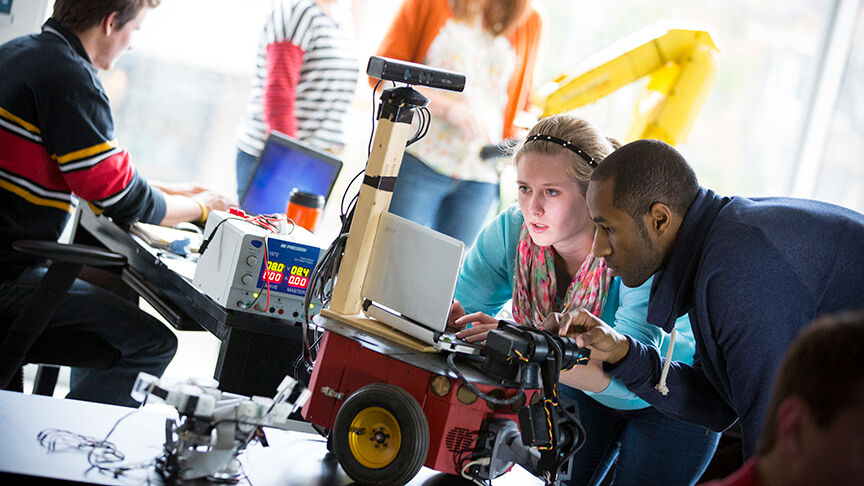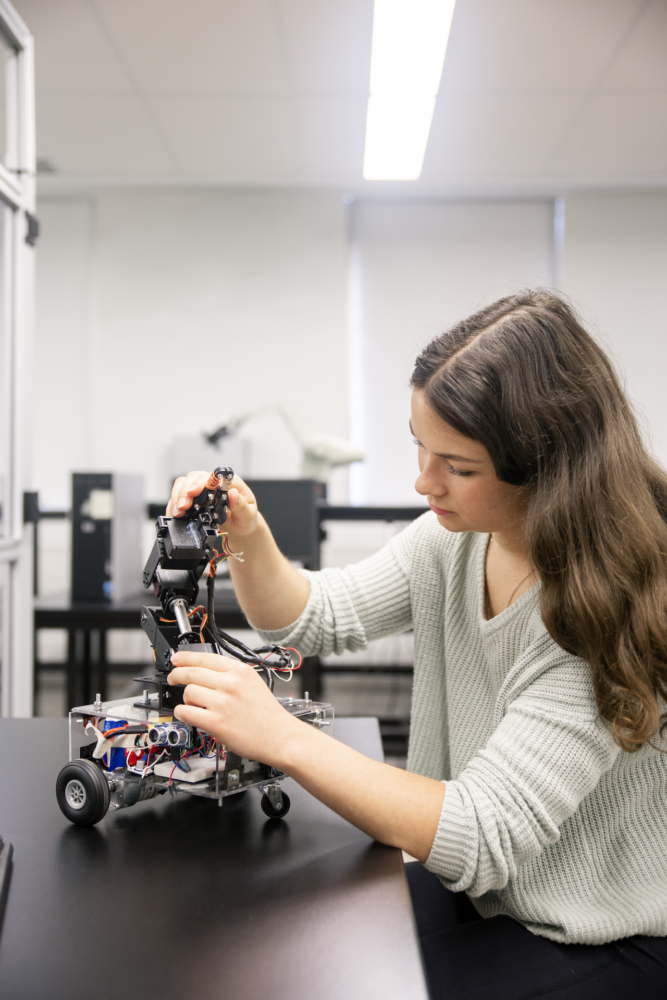How are smart appliances, drones, self-driving vehicles, prosthetic limbs and lifesaving medical technologies designed? University of Guelph students will explore these intelligent systems in the new Bachelor of Engineering in Mechatronics Engineering, set to begin in fall 2025.

Intelligent mechatronics, those advanced systems that incorporate elements of artificial intelligence (AI) and machine learning (ML), exist everywhere in the modern world and are the core focus of U of G’s new undergraduate program.
Combining multiple engineering disciplines, including mechanical, electrical, computer and biomedical engineering, mechatronics engineers incorporate diverse design elements to help shape solutions for the future. U of G students will learn vital skills to bridge the many disciplines together and integrate hardware and software seamlessly.
U of G’s mechatronics engineering program, offered through the College of Engineering and Physical Sciences’ School of Engineering, will be distinct in its emphasis on AI and ML in the curriculum.
The program was created through broad consultation and led by an interdisciplinary committee chaired by Dr. Hari Simha, professor in the School of Engineering.
“Mechatronics is the future of interdisciplinary engineering careers,” he says. “We can’t ignore it.”
‘Effective blend of all disciplines’ makes U of G mechatronics unique
The program is not biased towards any one of the disciplines and is seamlessly integrated with the College’s signature interdisciplinary design, Simha says. This makes the new mechatronics major unique in Canada and around the world.

“In other schools, AI is generally an elective,” he says. “But for us, it’s the core focus. The intersection of mechanical, electrical and computer engineering, and AI and machine learning makes ours a unique program in Canada. We have been very careful to make sure there’s an effective blend of all disciplines.”
He adds that a range of experts, including leading AI researcher Dr. Graham Taylor, have helped shape the curriculum. Taylor is the Canada Research Chair in machine learning, the academic co-director for the Centre for Advancing Responsible and Ethical Artificial Intelligence (CARE-AI), as well as a member of the Vector Institute for Artificial Intelligence.
Following their first year of study, students will have the option to specialize in either robotics, control and AI, or manufacturing and automation. A five-year co-op version of the program will also be available, with five work terms that will give students early industry experience.
Dr. Moncef Nehdi, dean of the College of Engineering and Physical Sciences, says this exciting new program is yet another way of ensuring that U of G’s education remains updated and aligned with evolving market needs.
“There is increased demand for skilled computer scientists and engineers in Canada,” says Nehdi. “The Mechatronics major will leverage Guelph’s unique engineering design spine, providing students with comprehensive and diverse training in critical fields to support society.”
As mechatronic systems span virtually every industry, including aerospace, manufacturing, automotive, medicine and agriculture, Simha says the program prepares students for diverse job environments and experiences.
Engineering students merge theory, practice, real-world experience
The new major is a natural fit with the School of Engineering’s philosophy of interdisciplinary approach, in which students regularly collaborate with fellow engineers in other disciplines.
The School of Engineering is home to seven other engineering majors, including biological, biomedical, computer, environmental, mechanical and water resources engineering, as well as engineering systems and computing.
“I would recommend the program to any person who has that interdisciplinary mindset,” Simha says. “Someone who likes to program, but also enjoys working with their hands to build circuits and small components.”
Prospective students are encouraged to learn more about the program and how to apply on the mechatronics engineering website.
